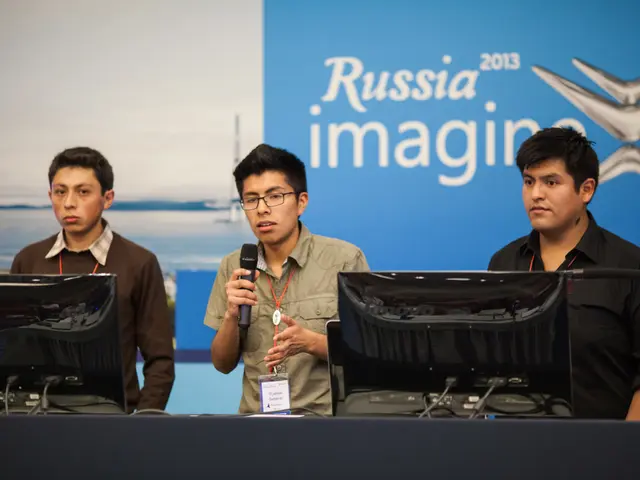Report Summary: Coverage of Kazakh President's Journey to Abu Dhabi, Publication on Kazakh Diplomacy, and Additional News
The UAE President, Sheikh Mohamed bin Zayed Al Nahyan, and Kazakhstan's President, Kassym-Jomart Tokayev, recently held discussions focusing on bilateral relations and issues of shared interest. This meeting marks a significant step in strengthening the collaboration between the two nations, particularly in the fight against climate change.
In a move that underscores their commitment, China's top political advisor, Wang Huning, met with Maulen Ashimbayev, Chairperson of the Senate of Kazakhstan. This meeting in Beijing further solidified the strategic partnership between China and Kazakhstan.
Kazakhstan, a landlocked country facing challenges such as water scarcity, glacier loss, and desertification, is implementing climate policies at both national and international levels. The country is also emphasizing regional cooperation and collective climate action that balances environmental and development needs.
AD Ports Group, a leading facilitator of trade and logistics, has entered into a partnership with SEMURG INVEST LLP to develop the Sarzha Grain Terminal at Kuryk Port in Kazakhstan. This terminal, to be constructed in two phases, will have an annual capacity of 570,000 tons of grain cargo upon completion of the first phase, expected in the second half of 2026.
The UAE, particularly Abu Dhabi, is positioning itself as a hub for climate innovation. The country is focusing on scaling climate-deep technologies such as green construction materials, energy storage, and low-carbon industrial processes. This collaboration could complement Kazakhstan’s infrastructure expansion by introducing cutting-edge sustainable solutions and de-risking capital-intensive climate innovation.
The UAE's success in renewable energy, including Masdar’s development of large-scale solar and wind projects in Central Asia, provides a clear pathway to joint renewable energy initiatives that reduce fossil fuel dependence across the region.
Both countries also share interests in promoting low-carbon energy transitions in their respective regions. The UAE is actively advancing renewable capacities and setting targets aligned with carbon neutrality goals by 2050. Collaborative projects could include transferring UAE clean energy expertise and technologies to Kazakhstan and Central Asia, while Kazakhstan’s transit role could facilitate regional export and integration of sustainable energy.
This partnership can create a model of regional cooperation combining technology, investment, and political collaboration to address climate change challenges unique to Middle East and Central Asia. The development of bilateral relations and cooperation between China and Kazakhstan is also moving quickly under the strategic guidance of the leaders of the two countries.
Kazakhstan will hold the Astana International Forum in May, providing an opportunity for collaboration on environmental initiatives. President Tokayev emphasized the urgency of addressing climate change in his speech at the Abu Dhabi Sustainability Week summit, where he also highlighted the need for climate adaptation strategies, including early warning systems, improved water and land management, and the modernization of irrigation systems.
This collaboration between the UAE and Kazakhstan, with its focus on joint regional climate governance, scaling and piloting climate-deep tech innovations, renewable energy project development, and knowledge sharing, offers a promising pathway towards a sustainable future for the Middle East and Central Asia.
Read also:
- Spheron and Nubila Team Up to Use Web3 Technology for AI that Combats Climate Change
- Renewable marine fuel with a reduced carbon footprint will be supplied by Seaspan, a newly-established collaborator in the climate movement.
- Anticipated Arrival of Additional 150 Electric Buses by BVG Next Year
- ChatGPT Transforms into an Intergalactic Tour Guide in the Sequel: Part 2








